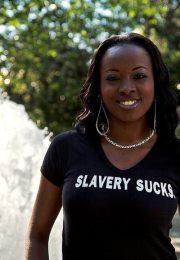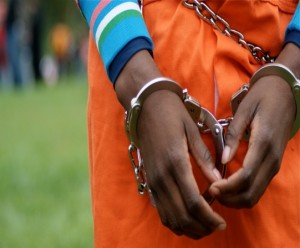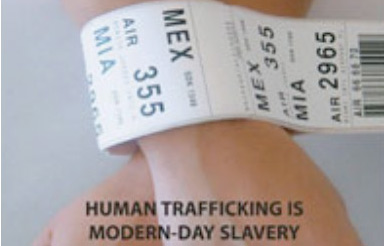Guest Post By: Cleo Tung
Master of Philosophy, Criminological Research University of Cambridge
Cleo Tung holds a Master of Philosophy in Criminological Research from the University of Cambridge. As a 2010 Gates Scholar, Ms. Tung focused her dissertation on exploring different NGO perspectives on human trafficking in the US. She is the former Vice President of the United Nations Children’s Fund at the University of California, Irvine, where she completed her BA in Criminology, Law & Society.
Although human trafficking predates information and communication technologies (ICT’s) such as the Internet, mobile phones, and social networking sites, there is little doubt that trafficking activity now takes place in the digital domain. Indeed, traffickers increasingly rely on ICT’s to recruit, advertise, and sell their victims. As the United Nations Global Initiative to Fight Human Trafficking notes, ICT’s are ideal conduits for trafficking because they “…provide a degree of anonymity and/or disguise which allows them [traffickers] to commit their crimes with reduced risk.”
Indisputably, ICT’s exacerbate the trafficking problem. The upside, however, is that the same technologies can ameliorate anti-trafficking efforts, as recently noted by Mark Latonero’s study at the University of Southern California, Human Trafficking Online. For example, ICT’s have proven critical to public awareness campaigns including the DNA Foundation’s “Real Men Don’t Buy Girls” campaign, which has helped educate the public on child slavery via social media platforms such as Facebook and Twitter. In fact, organizations are increasingly cognizant of ICT’s as an effective tool for expanding public understanding of human trafficking. Shared Hope International’s YouTube channel, the Coalition to Abolish Slavery & Trafficking’s webinars, and this very blog are but a few examples of such recognition.
Smartphone applications like the International Justice Mission’s IJM Mobile also signify the emergence of ICT’s as a useful anti-trafficking tool. Through IJM Mobile’s “Make Some Noise” feature, users can easily help raise public awareness and galvanize support for anti-trafficking policies by posting the latest trafficking-related news in their social networks.
Technological innovation in the anti-trafficking field is further exemplified by Survivors Connect, a California-based organization dedicated to leveraging ICT’s against human trafficking. Like IJM, Survivors Connect employs mobile technology with its SMS: Freedom helpline service, through which users can reduce their risk of victimization by connecting to professionals and resources (e.g. information about trafficking scams, safe migration, child protection, and emergency support) via text messaging.
Beyond mobile technology, Survivors Connect offers a range of data mapping programs, notably Freedom Datamap, which crowd sources information about where anti-trafficking organizations work and provide services globally. Freedom Datamap enables professionals, lawyers, service providers, government agencies, and international organizations to share critical trafficking information in a single space. Users submit their information through various media (e.g. email, Twitter, web reports), which is then aggregated into direct reports and plotted on an interactive map. With this program, users can easily access and share data, thereby empowering them to enhance collaboration efforts, learn best practices, and identify gaps in knowledge.
As we have seen here, technology can play a critical role in combatting the trafficking problem. Whether it’s raising awareness of the issue through Facebook or sharing the latest research through a webinar, anti-trafficking work has great potential to improve as technology continues to advance. For many, this could mean a life free from the violence, exploitation, and abuse endured under the conditions of modern-day slavery.
Special thanks to Founder and Executive Director of Survivors Connect, Aashika Damodar, who agreed to discuss her organization’s anti-trafficking work.
 Rob, a new Defender, recently did his part to try to save a potential victim of sex trafficking.
Rob, a new Defender, recently did his part to try to save a potential victim of sex trafficking.
 This is where things get complicated. When law enforcement becomes involved, a bottom girl will initially defend her pimp as she mistakes his abuse as an act of kindness. She defends the pimp’s act of rape, severe beatings, and verbal abuse by blaming herself. She often feels that she deserved what was done to her.
This is where things get complicated. When law enforcement becomes involved, a bottom girl will initially defend her pimp as she mistakes his abuse as an act of kindness. She defends the pimp’s act of rape, severe beatings, and verbal abuse by blaming herself. She often feels that she deserved what was done to her. By Anne Reilly
By Anne Reilly Though the TVPA provides a strong legal platform, many states are lacking laws on the issue. Shared Hope spearheaded the effort to make sex trafficking a priority issue in states by creating the
Though the TVPA provides a strong legal platform, many states are lacking laws on the issue. Shared Hope spearheaded the effort to make sex trafficking a priority issue in states by creating the 





